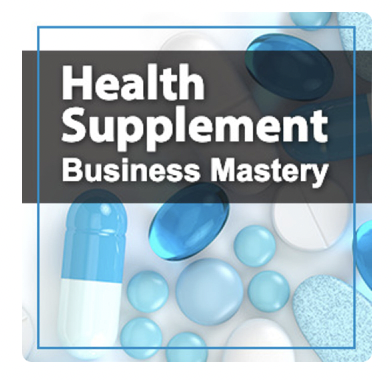The use of supplements has become increasingly common over the years among the general population. This has resulted in significant growth in the supplement industry. But of all the many different types of supplements, which category is growing the fastest?
The fastest-growing supplement category is weight loss supplements. This market segment is projected to grow at 16.6% per year from 2021 to 2028. This expansion is driven by rising obesity rates, diabetes cases, and other weight-related health problems.
Weight loss supplements may be growing the fastest, but many other supplement categories are seeing growth. Keep reading to learn about some other quickly-growing supplement categories.
| Rank | Niche | Total Addressable Market (TAM) | Competition | Annual Offer Revenue Potential |
| 1 | Weight Loss | Massive | Extremely High | $10 – $15M |
| 2 | Anti Aging | Massive | High | $1 – $30M |
| 3 | Brain Health | Very Large | Low / Medium | $10 – $15M |
| 4 | Hair, Skin, Nails | Very Large | Medium / High | $5 – $10M |
| 5 | Botanical | Massive | Medium / High | $1 – $5M |
| 6 | Prenatal | Medium | Medium / High | $1 – $5M |
| 7 | Bone & Joint | Very Large | Medium / High | $1 – $5M |
| 8 | Protein | Massive | Very High | $1 – $5M |
| 9 | Eye Health | Very Large | Medium / High | $1 – $5M |
| 10 | Heart Health | Very Large | Medium / High | $1 – $5M |
1. Weight Loss Supplements
Summary:
Total Addressable Market (TAM): Massive
Competition: Extremely High
Potential Annual Revenue For a Strong Offer: $10 – $15M
The weight loss supplement market has experienced significant growth in recent years, and this trend is expected to continue and even accelerate in the next decade.
The rising prevalence of obesity and its accompanying ailments such as diabetes, hypertension, and heart problems, coupled with increased awareness of health and wellness, has ramped up the demand for weight loss supplements globally.
The market for weight loss supplements is expected to rise over the next several years due to several factors.
First, there has been an increase in obesity rates due to people’s increasingly sedentary lifestyles and lack of exercise.
People are actively looking for ways to regulate their weight as they become more aware of the detrimental impacts of obesity on their health.
Supplements for weight loss are a practical and accessible way for people to lose weight.
Most people want to lose weight but aren’t willing to put in the work of diet and exercise to really get to their goal. This is why so many new years resolutions are broken. A weight loss supplement is the “easy” button. And that’s what people are buying when it comes to this category of supplements.
The weight loss supplement industry was valued at $33.4 billion in 2020. It is expected to grow at a compound annual growth rate of 13.3% from the year 2023 to 2030.
This makes weight loss supplements the fastest-growing supplement category by a long shot, and by 2030, the weight loss supplement market is expected to be valued at $405.4 billion.
Weight loss hits one of the core human desires that is hardwired in us all. Everyone wants to look good, feel good about themselves and be desired by others. Which is why it will probably always be the number one supplement category.
2. Anti-Aging Supplements
Summary:
Total Addressable Market (TAM): Massive
Competition: High
Potential Annual Revenue For a Strong Offer: $1 – $30M
The anti-aging supplement market has been steadily growing in recent years. There are several reasons for this.
First, the world’s population is getting older. As people live longer, the desire to look and feel young increases.
Anti-aging supplements, much like weight loss supplements are seen as an easy way to fight age related issues.
Much like the human need to be desired, longevity is another basic human instinct that’s hardwired into every person.
Improvements in medical and scientific studies have improved our knowledge of how to age healthily and how nutrition plays a role in that process.
The science has led to the creation of a wide variety of anti-aging supplements that promise to offer many advantages, including enhancing skin elasticity, decreasing wrinkles, enhancing cognitive performance, and strengthening general vitality, and more.
The market for anti-aging supplements is forecasted to grow to 106.85 billion by 2030, resulting in a CAGR of 13.4% from 2023 to 2030.
The anti-aging market is one that has several sub sets or sub niches within it. Since it encompasses everything from energy to vitality and more. Plus anti-aging means different things to different people.
One sub set of people are more interested in slowing down aging at the cellular level. While others are more interested in just looking younger and want plastic surgery in a bottle.
Each of those market sub sets consist of very different buyers but at the core is the same fundamental desire.
3. Brain Health Supplements

Summary:
Total Addressable Market (TAM): Very Large
Competition: Low / Medium
Potential Annual Revenue For a Strong Offer: $10 – $15M
The market for brain-health supplements is experiencing significant growth.
What’s driving this growth is the increasing awareness and understanding of the importance of cognitive health and brain function. And the importance of ensuring optimal brain health into old age. This can be considered a sub set of the anti-aging category. But this category is not just the typical older supplement buying audience.
The growth of mental health conditions like stress, anxiety, and depression (which has only been exacerbated since 2020) has also increased the demand for brain health supplements.
Many people are looking for all-natural remedies to help support their mental health and reduce cognitive symptoms brought on by stress and other mental health issues.
Additionally, the demanding and quick-paced nature of contemporary lifestyles has generated a demand for greater mental performance and cognitive development.
One sub niche of buyers in this category are the Bio-hackers and type A personalities. And as such brain health is marketed as an unfair advantage and a practical tool for increasing productivity, focus, and attention.
Brain-health supplements are popular among professionals, academics, and anyone looking to improve their cognitive function or focus, or even just simply get more done in a mentally demanding field.
The buying motivation for the younger demographic of this category is essentially to gain an edge over the competition or to accomplish more and be your personal best.
For an older demographic it’s as simple as staving off cognitive decline, brain fog and even Alzheimer’s and dementia.
In short, people are purchasing brain health supplements at record rates to think and function as best they can.
The brain health supplement industry had a market value of $8.63 billion in 2022, and the market is predicted to grow at a rate of 13.3% annually from 2023 to 2030.
4. Hair, Skin, and Nail Supplements
Summary:
Total Addressable Market (TAM): Very Large
Competition: Medium / High
Potential Annual Revenue For a Strong Offer: $5 – $10M
Various lifestyle elements that can harm the health of your skin, hair, and nails include stress, pollution, and bad nutrition.
The need for supplements that can specifically address these issues is on the rise. These supplements frequently include components that are thought to increase collagen synthesis, encourage hydration, strengthen hair follicles, and enhance the texture and appearance of skin.
Furthermore, scientific advancements have improved our comprehension of how diet contributes to the maintenance of healthy skin, hair, and nails. Due to this information, a variety of supplements that are thought to support the health and vitality of these traits have been created.
These supplements typically contain vitamins, minerals, antioxidants, and other nutrients, such as collagen or biotin.
The hair, skin, and nail supplements market is predicted to be worth $6.35 billion by 2028, meaning it will grow at a rate of 10.30% annually.
The size of the beauty and personal care market in the U.S. for 2023 is $92.79 billion dollars.
Regardless of what weather the economy goes up or down, the beauty industry is more likely than other discretionary categories to hold its own.
However it is one of the most competitive. Perhaps second only to weight loss. The alternatives available to consumers off-line in stores makes it a bit more difficult to compete with.
Some trends in which brands are competing on in this industry include natural, clean and sustainable products.
Products free from “bad” ingredients, with nothing artificial added. That contain ingredients that are sustainably produced with little impact on the environment are becoming standard.
The way to compete in this market is through a synergistic combination of ingredients and social proof. The beauty buyer is one that constantly shifts to a new product until they find the one or two that really works for them.
5. Botanical Supplements
Total Addressable Market (TAM): Extremely Large And Growing
Competition: Medium / High
Potential Annual Revenue For a Strong Offer: $1 – $5M
The market for botanical supplements is expanding significantly as a result of numerous important causes.
Consumers are becoming more interested in natural and plant-based products. People are looking for alternative remedies that are seen as more holistic and mild due to growing awareness of the potential side effects of synthetic chemicals.
Botanical supplements, which are made from plants and herbs, are popular among those looking for healthier supplement options since they are seen as natural and sustainable.
The market for botanical supplements has also expanded as wellness and preventive healthcare become more and more popular.
People are becoming more proactive in managing their health and seeking out natural ways to support their well-being.
Botanical supplements are viewed as a way to improve general health and deal with specific medical issues in a more comprehensive way that benefits the whole body.
Botanical supplements are expected to grow in market value from $27.47 billion in 2020 at a rate of 9.1% CAGR between 2020 to 2028.
6. Prenatal Supplements
Summary:
Total Addressable Market (TAM): Medium
Competition: Medium / High
Potential Annual Revenue For a Strong Offer: $1 – $5M
The prenatal vitamins supplement category is expected to see major growth in the coming decade.
Pregnancy-related maternal and fetal health is receiving more attention. Pregnant women are taking a more proactive approach to meeting their nutritional needs and looking for ways to promote the healthy development of their unborn children.
Prenatal vitamins, minerals, and nutrients make up for any nutrients that may be missing from a pregnant woman’s diet, ensuring that both the mother and the growing fetus receive the best possible nourishment.
As part of prenatal treatment, many healthcare practitioners frequently suggest prenatal vitamins. This recommendation from medical professionals highlights the significance of dietary supplements and encourages consumer intake. Pregnant women are more inclined to include prenatal supplements in their daily routines based on the suggestions of their healthcare providers because they trust them.
Furthermore, scientific research results have brought attention to the crucial part that some nutrients play in promoting a healthy pregnancy. The growth of the unborn child and the health of the mother depends on the presence of vital nutrients such as folic acid, iron, calcium, omega-3 fatty acids, Vitamin D, and Vitamin B12. Prenatal supplements are designed to supply the necessary amounts of these elements.
Additionally, the industry has grown as a result of increased knowledge and awareness of the advantages of prenatal supplements. Brands like Ritual are a great example of how a new brand in this old space can disrupt the market.
More than ever, expectant mothers are seeking trustworthy sources of information on pregnancy and the value of a healthy diet. Pregnant women can better grasp the benefits of prenatal supplements and their possible effects on the mother’s and fetus’ health thanks to the availability of educational resources, internet platforms, and prenatal classes.
The value of the prenatal supplement industry is expected to increase by 8.6% every year from 2019 to 2025. This means that this supplement industry will likely be worth $673.8 million in 2025.
7. Bone and Joint Health
Summary:
Total Addressable Market (TAM): Very Large
Competition: Medium / High
Potential Annual Revenue For a Strong Offer: $1 – $5M
The market for supplements that support bone and joint health is expanding significantly.
This is partially because the world’s population is getting older. Age-related bone and joint conditions including osteoporosis, osteoarthritis, and joint pain are becoming more common.
People are becoming more conscious of how crucial it is to keep their bones and joints healthy to support an independent and active lifestyle.
Supplements for bone and joint health are a practical and affordable option for people wishing to maintain their skeletal system.
Inadequate nutrition and the predominance of sedentary lifestyles also contribute to the demand for supplements for bone and joint health.
The extended sitting, lack of exercise, and bad foods that characterize modern lifestyles can affect bone density and joint health.
People are looking for dietary supplements that offer the elements required to support bone and joint health, such as calcium, vitamin D, magnesium, and glucosamine.
A larger emphasis on proactive bone and joint health maintenance has also resulted from the growing emphasis on preventive healthcare and general well-being.
This is not simply another spin on the anti-aging market. This group of buyers are more interested in lifestyle and continuing to do physical activities they enjoy as they age.
People are looking for solutions to stop or treat bone and joint problems before they get worse. Supplements for the bones and joints are seen as a proactive way to strengthen and maintain strong bones and joints, which enhances mobility and quality of life.
The impact of the health and wellness sector, as well as athlete and fitness enthusiast endorsements, have contributed to the rise in popularity of supplements for bone and joint health.
The interest of customers in dietary supplements that can support their bone and joint health has increased as a result of their desire to live an active lifestyle and participate in physical activities without restrictions.
The bone and joint health supplement market was valued at $11.7 billion in 2022. It is expected to grow to $17.6 billion by 2027, marking a CAGR of 8.5%.
8. Protein Supplements

Summary:
Total Addressable Market (TAM): Massive
Competition: Very High
Potential Annual Revenue For a Strong Offer: $1 – $5M
The market for protein supplements is expanding significantly and is expected to continue to do so for years to come.
People of all ages are placing more and more importance on physical performance, health, and fitness.
It is well known that protein is an essential ingredient for muscle development, maintenance, and recovery.
The need for protein supplements to boost muscle growth and improve athletic performance has greatly expanded as more individuals participate in fitness activities, sports, and strength training. And even for an older audience who lose muscle as they age.
People are also becoming more aware of the value of protein in sustaining a healthy diet and reaching physical objectives.
Protein is crucial for muscle maintenance and general nutritional balance. However, some people can find it difficult to get enough protein in their diets daily.
For those who lead active lifestyles or have certain dietary choices, such as vegans or vegetarians, protein supplements are a cost-effective approach to augmenting their protein intake.
Furthermore, advances in science and sports nutrition have brought attention to the importance of protein in enhancing physical performance and recuperation.
The advantages of protein supplements for muscle protein synthesis, muscle strength, and exercise adaption are well supported by a lot of research. Because of the scientific support, protein supplements are now popular among athletes, fitness buffs, and others looking to change their body composition.
This is a great example of a market that has many different buyer personas across a wide age range. But each group has very different desires for taking a protein supplement and thus needs to be marketed to differently.
The protein supplement market is expected to grow by 8% from 2022 to 2030. It was deemed to be worth $6.26 billion in 2021.
9. Eye Health
Summary:
Total Addressable Market (TAM): Very Large and Growing
Competition: Medium / High
Potential Annual Revenue For a Strong Offer: $1 – $5M
The eye health industry is one of those industries that will be expanding for many years to come.
Eye-related illnesses and vision issues are becoming more common. Age-related macular degeneration, dry eyes, greater exposure to blue light from screens, and bad lifestyle choices all play a role in the rising occurrence of these eye health problems.
There is an increasing need for goods that can support and improve visual well-being as individuals become more conscious of the value of keeping excellent eye health.
Furthermore, the amount of time people spend using screens has significantly increased for many people as a result of technological and digital gadget developments.
Digital eye strain, weariness, and pain can result from using screens for extended periods of time. As a result, consumers are looking for solutions like eye drops, lubricating gels, and dietary supplements that can help with these symptoms while also supporting eye health.
Just like bone and joint health this area can be seen as more of a preventative but there are sub sets of the market that have a greater desire than others. Typically with any supplement it’s easier to sell the cure than to sell prevention.
However, wellness and preventive healthcare are receiving more attention. Many people are acting proactively to safeguard their health and stop potential problems.
As the market is growing in awareness and sophistication, people are becoming more aware of the significance of eye health in preserving good vision and preventing vision decline.
This awareness has increased the value of the market for goods that support eye health, such as supplements that include vitamins, minerals, antioxidants, and omega-3 fatty acids, which are thought to support eye health.
The market for eye health is also expanding dramatically as a result of the aging population.
Age-related eye problems including cataracts and macular degeneration are becoming more common. These areas have a higher problem state buyer.
Products that can halt the course of these illnesses and maintain vision are especially appealing to older people. The need for eye health products is anticipated to increase as the population continues to age.
From 2022 to 2027, the eye health supplement market is estimated to grow at a rate of 6.5%.
10. Heart Health Supplements

Summary:
Total Addressable Market (TAM): Very Large
Competition: Medium / High
Potential Annual Revenue For a Strong Offer: $1 – $5M
The market for supplements for heart health is growing.
The top cause of death worldwide is heart disease, and people are becoming more engaged in supporting their heart health.
Heart-health supplements are considered to be a straightforward and readily available way to incorporate heart-healthy nutrients into people’s diets.
The heart health supplement market is expected to grow relatively slowly at a rate of 4.5% from 2020 to 2030.
Discover the 3 funnels that can help your health supplement business succeed.

Listen to the Health Supplement Business Mastery Podcast for for dietary supplement entrepreneurs and marketers.




